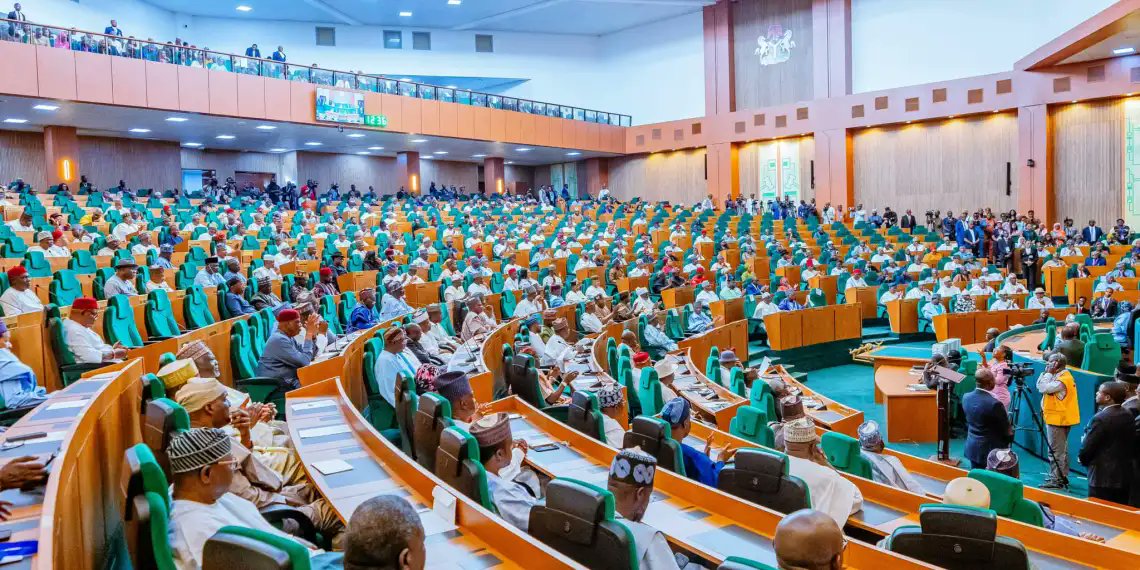Listeners:
Top listeners:
-
play_arrow
104.9FM Best rock music demo
-
play_arrow
Demo Radio Nr.1 For New Music And All The Hits!
-
play_arrow
Demo Radio Techno Top Music Radio
-
 play_arrow
play_arrow
Police Commissioner Launches Weapon and Riot Control Training for FCT Officers Democracy Radio

By Oluwakemi Kindness
The House of Representatives on Wednesday passed through second reading a bill seeking for an act to establish Nigerian Institute of Agricultural and Applied Economics to regulate, control and determine the standard of knowledge to be attained by persons seeking to become members of the institute.
The proposed legislation by the Deputy Speaker, Benjamin Kalu and eight others, was presented for second reading at plenary on Wednesday by one of the co-sponsors Tolani Shagaya.
In his lead debate, Shagaya noted that Nigeria’s agriculture sector is the very backbone of economy and with the sector, the country can easily return to the path of economic diversification, national prosperity, job creation, sufficiency in food production, amongst others.
He lamented that one critical area that has not received the attention it deserves is the field of Agricultural and Applied Economics, as today, farmers struggle not because they lack effort, but because they lack the benefit of economic planning and analysis by experts and professionals in that field.
He said the Bill is not just about establishing another institution but about institutionalizing excellence, setting a national standard, and giving proper identity and professional structure to an often overlooked but absolutely vital field in our economy.
The lawmaker therefore urged his colleagues to support the bill’s passage, assuring that it’s not just for the agricultural economists it seeks to empowers, but for the millions of farmers, consumers, and investors whose future depends on smart, sustainable, and data-driven agriculture.
Shagaya said, “I rise today to lead the debate on the general principles of a Bill for an Act to Establish the Nigerian Institute of Agricultural and Applied Economics to Regulate Control and Determine the Standard of Knowledge to be attained by Persons Seeking to Become Members of the Institute; and for Related Matters. Agricultural and Applied Economists — remain largely unrecognized, under-supported and as a matter of fact there is no legal framework for the practice of this unique and important profession.
“This Bill seeks to fill that institutional void. It recognizes the role of Agricultural and Applied Economists as central to guiding efficient agricultural policies, farm business management, rural development, agribusiness strategy, climate-resilient farming systems, etc. Furthermore, this Bill is a logical evolution of the work done over decades by the Nigerian Association of Agricultural Economists, which has long operated without statutory backing. It is now time for the profession to have a legal foundation, structured membership, disciplinary procedures, and academic accreditation mechanisms — just like engineers, accountants, and other professionals.
“This Bill consists of 7 parts, 32 clauses and 3 schedules and the key provisions include: A. Establishment, Functions and Powers of the Nigerian Institute of Agricultural and Applied Economics; Elections, tenure and functions of the Council; C. Registrar and Registration; D. Accreditation; E. Professional discipline, Council meeting and Miscellaneous. With climate change, global food inflation, and evolving agricultural markets, Nigeria needs competent professionals in policy, investment, and farm economics. The Institute proposed by this Bill will become the backbone of economic intelligence in agriculture, serving policymakers, farmers, agro industrialists, and the public.”
Written by: Democracy Radio
Similar posts
Copyright Democracy Radio -2024


